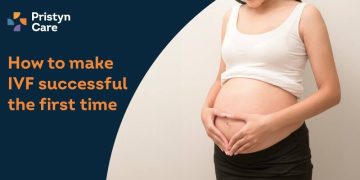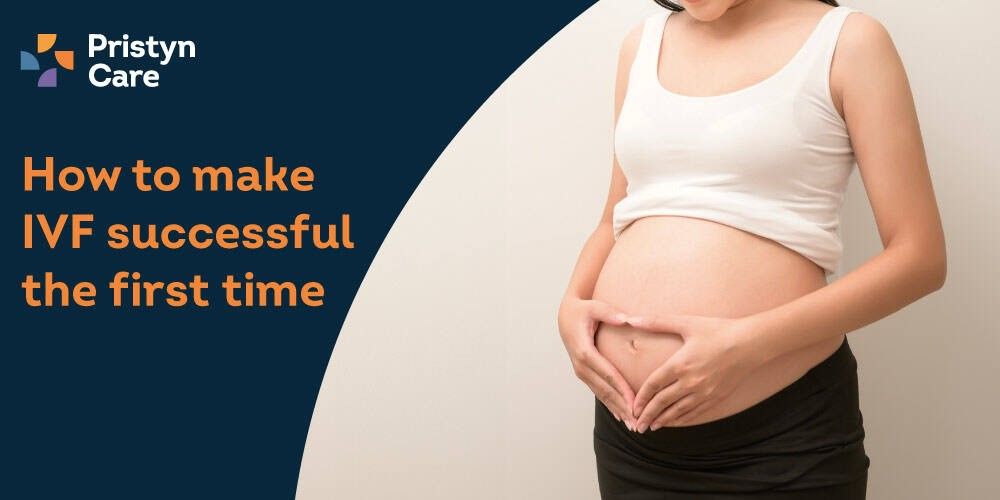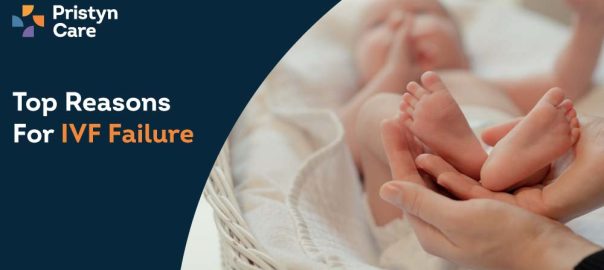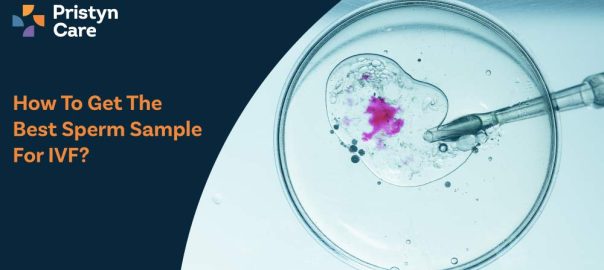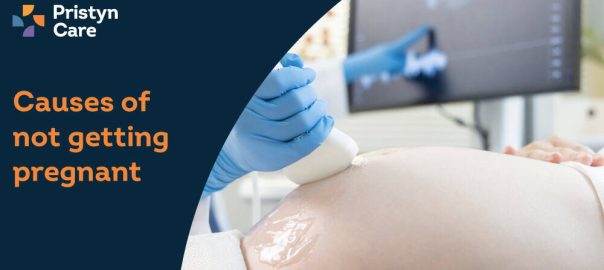![]() Views: 185
Views: 185
How to Make IVF Successful the First Time
Read on for tips and knowledge that may just make your journey towards parenthood smoother and more rewarding.
Dedicated Support at Every Step!
Our Doctors are available 24 hours a day, 7 days a week to help you!
Call Us0806-541-7961Table of Contents
Understanding IVF and Its Process
In simple terms, IVF is a process where an egg is removed from a woman's ovaries and fertilised with sperm in a laboratory. The fertilised egg, now an embryo, is put back into the woman's womb to grow and develop. This might sound straightforward, but there's more to it.
The IVF process involves five main stages:
- Stimulation of the ovaries - Here, medications are prescribed to stimulate the ovaries to produce multiple eggs instead of just one.
- Egg retrieval - In this stage, the mature eggs are collected from the ovaries with a minor surgical procedure.
- Fertilisation - The collected eggs are then combined with sperm in a laboratory dish to facilitate fertilisation.
- Embryo development - Post-fertilisation, the embryos are monitored for growth and development.
- Embryo transfer - Finally, one or more healthy embryo(s) is transferred into the woman's womb.
IVF success rates vary widely depending on several factors, such as age and lifestyle. For instance, younger women generally have higher IVF success rates than older women. Moreover, a healthy diet and lifestyle can help enhance IVF success.
The Role of Fertility Specialists
A fertility specialist plays a pivotal role in your IVF journey. From initial consultations and diagnosing fertility issues to guiding you through the IVF process and providing post-procedure care, these experts are with you every step of the way. The combination of their expertise and your commitment can significantly increase your chances of a successful IVF pregnancy.
Fertility specialists provide personalised treatment plans, offer dietary advice for improved chances of IVF success, monitor your health through the IVF cycle, and most importantly, provide emotional support during this often stressful journey. They are committed to helping you realize your dream of parenthood.
No Cost EMI, Hassle-free Insurance Approval
Physical and Emotional Preparation for IVF
Embarking on the journey of In Vitro Fertilisation (IVF) can feel overwhelming, especially when you're uncertain about what to expect. But worry not! You can take several steps to make your journey smoother.
Firstly, it's crucial to prepare yourself physically. This involves leading a healthy lifestyle. Regular exercise, balanced diet, and maintaining an optimal weight can significantly enhance your IVF success rate. But remember, each body is different. So, it's worth discussing your exercise routine and diet with your doctor to ensure they're suitable for you.
Now, while physical readiness is of prime importance, let's not undermine emotional readiness. The process can sometimes be stressful and demanding. Hence, practicing stress management techniques such as meditation, yoga or even therapy might help you stay calm and focused.
In short, it's essential to maintain a healthy lifestyle and mental balance to make your IVF successful.
Factors that Influence IVF Success Rates
Now, let's dive into various factors that might influence the success rates of an IVF procedure. Number one on this list is age. It's well established that IVF success rates by age vary significantly, with younger women generally experiencing higher success rates.
Secondly, the quality of eggs and sperm plays a fundamental role in IVF success. Therefore, leading a healthy lifestyle helps preserve their quality.
Thirdly, underlying health conditions like polycystic ovary syndrome (PCOS) or endometriosis might hamper the success rates of IVF. Hence, addressing these medical conditions before proceeding with IVF can increase the chances of a successful pregnancy.
The Significance of Pre-IVF Tests
Moving on to another critical component in our journey to understand IVF better - pre-IVF tests. The significance of these tests can't be overstated! They serve as pivotal stepping stones towards ensuring a successful IVF cycle.
These tests help doctors to understand your health better and make a personalised plan for your IVF journey. For instance, a hormonal profile helps the doctor understand your body's response to fertility drugs. Similarly, an ultrasound of the uterus helps assess the condition and shape of the uterus, thus helping to increase the chances of successful implantation.
Pre-IVF tests help in devising a customised approach, thereby increasing the chances of IVF success. So, remember to not overlook them in your preparation for IVF.
MBBS, MS-Obs & Gynae | Chief Consultant – IVF & Fertility Sciences
₹2400₹1200Consultation Fee
MBBS, MS-Obs&Gynae, Fellowship N.B. (Reproductive Medicine)
₹2400₹1200Consultation Fee
MBBS, MS - Obstetrics & Gynaecology, DNB, MRCOG (Part 1) FIRM
₹1000₹500Consultation Fee
Understanding the Role of Post-IVF Care
Following an in-vitro fertilisation (IVF) procedure, it's crucial to concentrate on aftercare, also known as post-IVF care. This period plays a significant role in determining the IVF success rate and requires much attention. Not only does it involve abiding by certain dos and don’ts, but also necessitates regular follow-up check-ups with your doctor.
Additionally, one must be prepared for various possible outcomes of the IVF cycle, and psychologically ready to cope with them. All these elements can potentially contribute to the improvement of IVF success rates by age.
Post-IVF Dos and Don’ts: Tips to Make IVF Successful
To enhance your chances of a successful IVF pregnancy, adhering to a few fundamental tips are essential. These include keeping stress at bay, following a balanced diet (often referred to as IVF success tips diet), getting ample rest, and avoiding vigorous physical activities.
Furthermore, maintaining open communication with your doctor is vital. They can help you understand the process better and clarify any doubts you may have regarding your treatment. Besides, they can provide personalised advice based on your health condition and age, which could possibly hike up the IVF success rate.
The Importance of Follow-Up Check-ups
Regular follow-up check-ups post-IVF treatment are paramount in monitoring your health condition. These visits allow the doctors to track developments post embryo transfer and improve chances for successful implantation, presenting as another practical IVF implantation success tip. With patient cooperation and medical vigilance, a successful IVF cycle becomes much more achievable.
Understanding these facets of post-IVF care can significantly aid in improving your chances of success. Remember, every small step counts and with the right approach and guidance, a successful IVF cycle is within reach.
Conclusion
In wrapping up, it's evident that the journey to a successful IVF procedure is one filled with careful preparation, unwavering commitment, and meticulous adherence to the advice of your healthcare professionals. With the right mindset and approach, you can significantly boost your IVF success rate.
Remember, your age plays a crucial role in the outcome of an IVF procedure. Generally, IVF success rates by age tend to favour younger couples. However, this shouldn't discourage older couples from pursuing IVF as advancements in medical technology have broadened the scope of possibilities.
Your dietary choices can also have a big impact on the success of your IVF procedure. Maintaining a balanced diet rich in essential nutrients can greatly enhance your chances of a successful IVF cycle. It's beneficial to consult with a nutritionist for an IVF success tips diet that suits your individual needs.
Additionally, it's important to keep an open line of communication with your doctor throughout the process. Your doctor can provide you with invaluable tips to make IVF successful. This can range from suggesting lifestyle changes to advising on how to prepare for the embryo transfer.
Armed with these tips for a successful IVF cycle and pregnancy, along with the professional advice from your healthcare provider, you are well on your way towards achieving your dream of parenthood through IVF. Remember, each journey is unique and patience is key. Don't be disheartened if success doesn't come immediately - stay positive and keep trying.
FAQs
- What is the average IVF success rate for the first time?
The success rate of in-vitro fertilisation (IVF) varies from person to person, based on several factors such as age, health condition and the quality of eggs. Generally, the overall IVF success rate hovers around 40% for women under the age of 35. It is strongly advised to consult with your doctor for personalised advice. - How does age influence IVF success rates?
Age plays a crucial role in determining IVF success rates. Generally, younger women have higher success rates compared to older women due to better quality and quantity of eggs. For instance, women under 35 years have around a 40% chance of having a baby through IVF, while women over 42 years have a mere 4% chance. - Can diet impact the outcome of my IVF cycle?
Yes, your diet can influence the success of your IVF cycle. Proper nutrition is essential for reproductive health as it can improve egg quality and optimise your body for pregnancy. Therefore, an IVF success tips diet would include plenty of fruits, vegetables, lean proteins, and whole grains. - What are some tips to make my IVF successful?
A few tips to make your IVF successful include maintaining a healthy lifestyle, managing stress levels, following a balanced diet and regular exercises. Also, following your doctor's instructions carefully regarding medications and treatments can significantly improve your chances of success. - Can you share some implantation success tips for my upcoming IVF?
Surely! Some IVF implantation success tips include taking prescribed medications correctly, avoiding strenuous activities post-procedure, eating a nutrient-rich diet and maintaining a positive attitude. - What should I know for a successful IVF pregnancy?
For a successful IVF pregnancy, it is crucial to take prescribed medications as instructed, regularly visit your doctor for follow-up appointments, maintain a healthy lifestyle, and stay positive throughout the process. - How does a healthy lifestyle contribute to the success of my IVF cycle?
A healthy lifestyle can significantly improve your chances of a successful IVF cycle. Regular exercise, balanced nutrition, adequate sleep and stress management can all contribute to better reproductive health and higher success rates with IVF.



